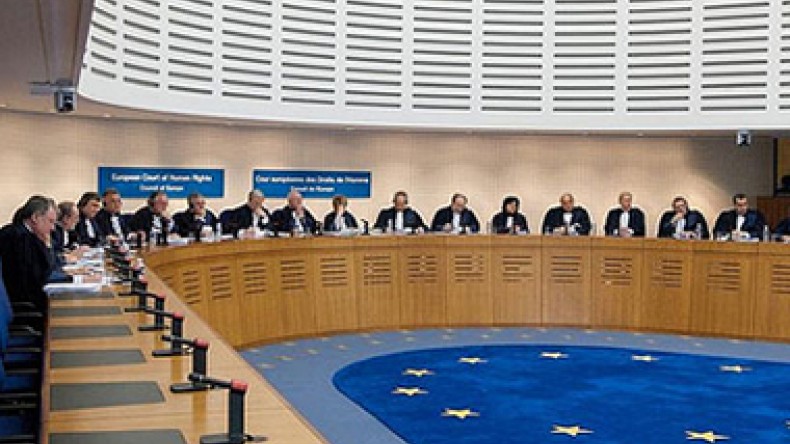
The PACE became “occupied territory” by Azerbaijan
On November 4 in Paris, the Political Committee of the Parliamentary Assembly of Council of Europe adopted the notorious draft report on Nagorno-Karabakh. Surprisingly, expectations of all sides were met. Forecast of the Armenian delegation that the report will be one-sided, unbalanced and indeed provocative turned to be prophetic. Yet Azerbaijani delegates could hardly hide their bliss while talking about the draft report and generally about the role of the PACE.
Paradoxically couple of months ago the President of Azerbaijan discarded the critical resolution of the PACE on democratic institutions in Azerbaijan as a “piece of paper”. President Alieyev’s assessment of the PACE documents is not far away of reality. Those resolutions are legally not binding and have not enough political weight for any real impact. Nevertheless, in the cases of high sensitivity such as the Nagorno-Karabakh conflict, this kind of “weightless” papers could influence public perceptions. Moreover, Azeri adventurous authorities could use this document to justify their practice of cease-fire violations which would claim lives of innocent people.
It is noteworthy that the initiative of having a report on Nagorno-Karabakh belongs to Azerbaijan which invested a lot of resources for the adoption of such report. It is clear that Azerbaijan has a “pragmatic” policy of double-standards towards the PACE and generally towards the Council of Europe. If there is a criticism on domestic issues of Azerbaijan the Council of Europe turns to be valueless organization which takes part in anti-Azerbaijani conspiracy. But in the context of Nagorno-Karabakh conflict each pro-Azeri document of this “valueless organization” are “sold and bought” with price higher than its market value.
It is obvious that Azerbaijan succeeds in maintaining a significant group of supporters in the PACE. Vivid manifestation of this reality is the fact that, among other European institutions, only the Parliamentary Assembly of the Council of Europe sent observation mission to the parliamentary elections held in Azerbaijan on 1 November. Despite continuous criticism of other international organizations and human rights defenders on deplorable human rights situation in Azerbaijan the PACE delegation headed by Spanish MP Jordi Xucla (Spain, ALDE group) gave a grotesque assessment to these elections commending steps taken by the Republic of Azerbaijan towards free, fair and democratic elections. This statement with its sycophancy could only be matched with the similar statement of the PACE observation mission headed by Robert Walter (UK, EC group) on the presidential elections in Azerbaijan held in October 2013.
It is not by chance that the Azerbaijani lobby spare no efforts to have same Mr. Robert Walter appointed a rapporteur on Nagorno-Karabakh. The British parliamentarian who is notorious for his involvement in “caviar diplomacy”, upon appointment as rapporteur, in accordance to the PACE Rules of Procedures, declared that he had no conflict of interest and will be objective and impartial in his work. Here, question rises whether Mrs. Ferida Alp-Walter, the wife of Robert Walter, a Turkish national and, according to open sources, promoter of investment project in Azerbaijan alongside with Azeri State Oil company (Socar), hides her profits from her own husband. Otherwise Mr. Walter would not declare absence of conflict of interest unless he dared to lie.
The members of the Political Committee of the PACE who supported Walter’s report were fully aware about conflict of interests. Apparently these staunch defenders of the rule of law, human rights and democracy have had serious incentives to violate the rules of procedure of their own organization.
Coming to the substance of the draft report it should be mentioned that from the title to the last phrase it reflects the Azerbaijani narrative about the Nagorno-Karabakh conflict. The draft report ignores the negotiation process under the auspices of the OSCE Minsk Group. While distorting basic principles of negotiations the document seems to be Azerbaijani wish list. James Warlick, American co-chair of the OSCE Minsk Group, commenting on the draft report expressed readiness to consider possibility of holding consultation with the PACE rapporteurs and interested parliamentarians. In fact, the American diplomat in a diplomatic manner suggested that it would be wise to consult the expert group beforehand and expressed willingness to provide necessary information on the Nagorno-Karabakh conflict.
Facts that author of the draft report didn’t consult with mediators and failed to visit Nagorno-Karabakh and Armenia (Walter’s claim that he did his best to visit Nagorno-Karabakh and Armenia is not credible enough) prove again that the document could not be impartial and comprehensive. It is worth to mention that Mr. Walter ceased to be a member of the PACE just three days after presenting his report because he was not elected to the national parliament.
Adoption of this kind of report that is procedurally flawed and biased in substance could significantly undermine credibility of the PACE in terms of having any meaningful role in any conflict resolution efforts.
Notwithstanding, the PACE is still capable of being an important platform for discussion of issues of pan-European importance. And there is still hope that “occupation” of the PACE by Azerbaijan and its supporters will not last long. Otherwise it would be near impossible to uphold declining credibility of the PACE, which would become the only European structure opposing European values. Let’s hope that democratic forces are still capable of consolidating their efforts in order to protect values and principles of the Council of Europe.
Newsfeed
Videos






























